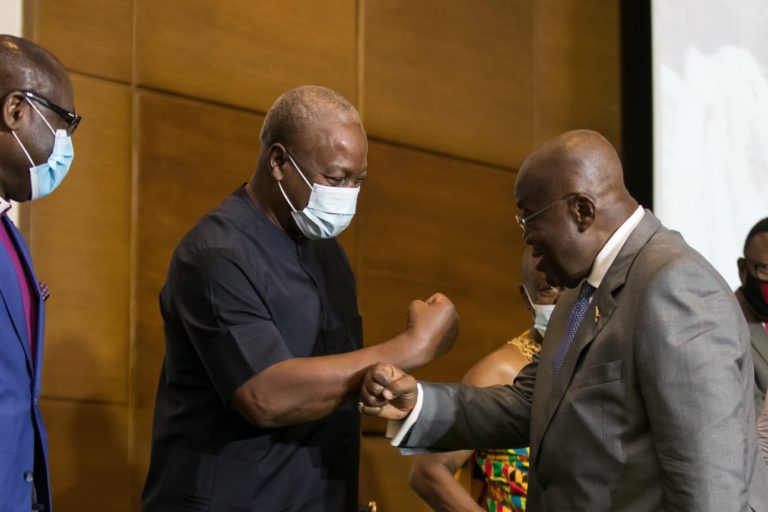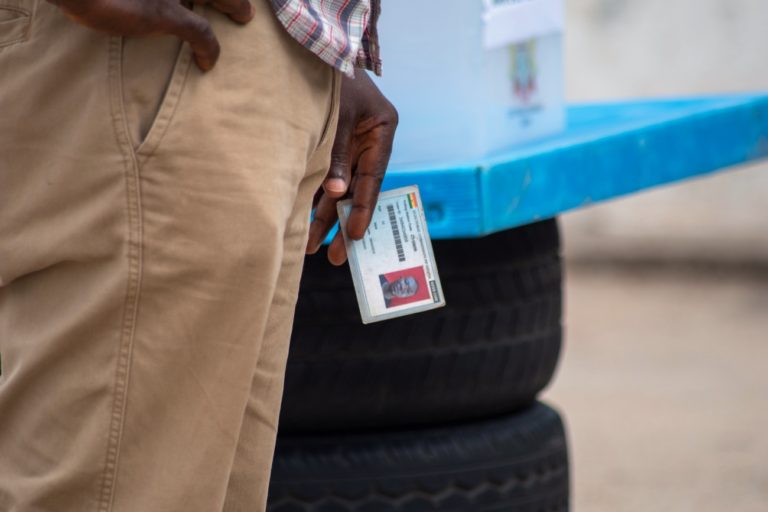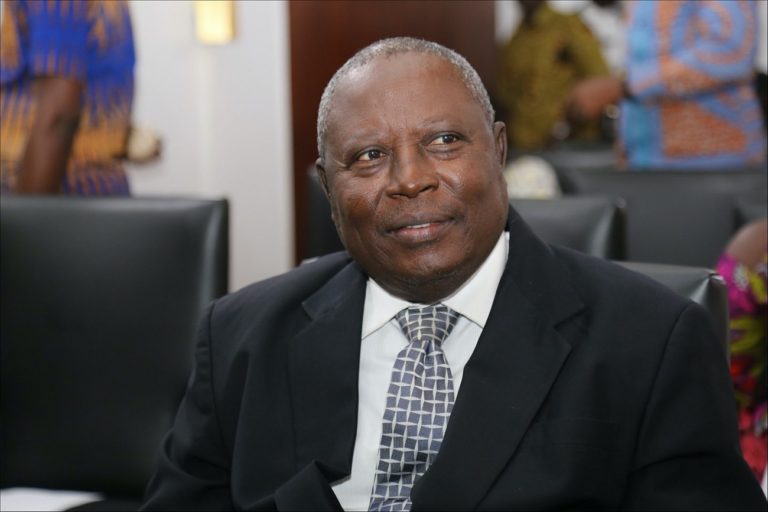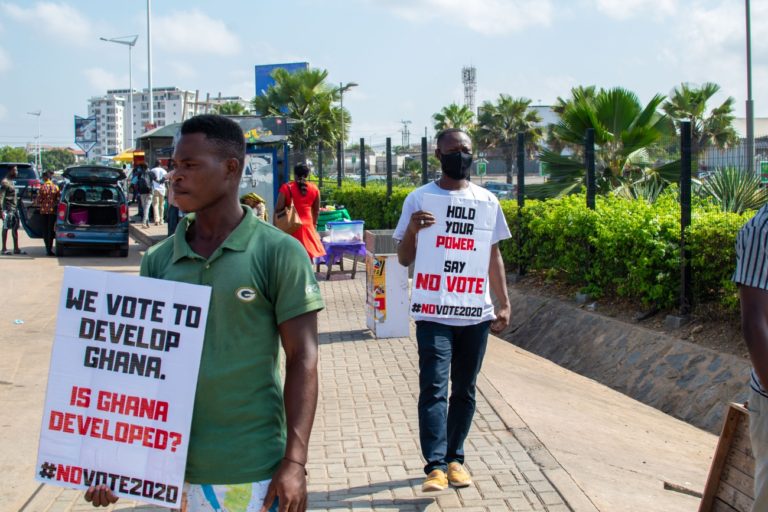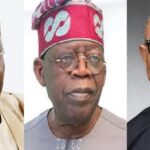Over 17 million Ghanaians are heading to the polls for an eighth straight democratic election on Monday, December 7.
Once again, the incumbent President Nana Akufo-Addo and former President John Mahama are going head-to-head as overwhelming front-runners in a field of 12 presidential candidates.
This election is unique in the fact that the two main contenders have both been Head-of-State and are looking for their second term.
Mahama lost in the 2016 election in a comprehensive fashion to Akufo-Addo; almost by 1 million votes. He thus became the first incumbent to lose an election in Ghana’s political history.
Concerns over corruption, the management of the economy and an energy sector crisis sunk Mahama’s bid for a second term.
Akufo-Addo rode on his anti-corruption agenda and the promise of the full implementation of a free secondary education policy. He succeeded at the latter but not so much the former.

In the weeks leading up to the polls, the opposition party has tried to make corruption the main talking point since the resignation of Ghana’s Special Prosecutor because of alleged political interference.
The government has, of course, denied the claims of corruption and it remains unclear if the recent happenings could swing the election in Mahama’s favor.
Akufo-Addo has campaigned mainly on its education initiatives, while Mahama has tried to counter the educational gains by making promises of his own, including making tertiary education free for first years if he wins the polls.
Like past elections in Ghana, there has been a decided lack of substance in the political discourse with slogans and barbs dominating party and media agendas instead of policy.
The Coronavirus and its management, for example, has barely registered beyond the expected safety protocols at the polls.
There has been no presidential debate and the manifestoes presented by the parties have been shallow with many promises but little by way of plans for execution.
The truth is Ghanaians have always voted along ethnic lines with the dominant Akan ethnic group more likely to vote for Akufo-Addo’s New Patriotic Party (NPP) and the other groups more inclined towards Mahama’s National Democratic Congress (NDC).
The fascinating thing is that there is almost a 50-50 split between the Akans (who make up 47.5 percent of the population according to Ghana’s last census) and the other ethnic groups which accounts for the regular changes in power between the two.
No party has governed for more than or less than two consecutive terms.
As the election day nears, the only message that matches up to the campaign cacophony of the NDC and NPP is the call for peace.
Whilst reminders for restraint and peace are consistent across Ghana’s mass media, very few believe there is a threat of significant election-related violence.
Since its return to a multi-party system in 1992, international observers have praised Ghana’s elections, which are perceived as peaceful and the bedrock of one of Africa’s most stable democracies.
Ghana’s landmark 2000 election saw the first-ever transfer of power between two parties in Ghana’s history and this alternation between the NDC and NPP has happened two more times.
As the years go by, fewer Ghanaians are able to relate to the idea of a coup or have lived under military rule. Ghana suffered a series of military interventions in governance from 1966 until 1992.
But since then democracy has been the norm and peaceful elections are now being taken for granted amid a sub-region that has been plagued by significant levels of political instability.
However, the expectation of peaceful polls betrays the intense partisan tensions that precede elections and with the onset of new media, the partisan divide has been deepening further with more aggressive and toxic exchanges that have the tendency to lead supporters astray into eruptions of violence.
Disputes over the electoral roll are now election cycle curtain raisers, as well as accusations of electoral malpractice fired at whichever party is in government.

Concerns over voter suppression were rampant during the country’s controversial voter registration exercise after soldiers were deployed to opposition strongholds.
The registration exercise itself was marred by some violent incidents which resulted in death.
Take a step back, however, and while contentious, the electoral process has so far resembled something akin to peaceful.
No matter how heated things get, Ghanaians expect the frontrunners to what they have always done, be magnanimous in defeat and humble victory.
In 2016, when it was clear the election was lost, incumbent President Mahama quickly conceded and begun the peaceful transition process. His supporters followed suit.
Before 2016, Akufo-Addo had contested and lost two elections in photo finishes.
In the 2008 election, between Akufo-Addo and the NDC’s then-candidate John Atta Mills, no candidate received the 50-percent-plus-one of the votes needed to avoid a run-off election.
The run-off was held a few weeks later and the result came down to one constituency where voting was delayed.
There were fears of rigging and claims of electoral fraud which we have seen escalate into sectarian violence in other Africa countries like Kenya and Zimbabwe.
Akufo-Addo eventually lost by less than a percent and conceded despite his misgivings.
It was another close defeat for Akufo-Addo in 2012 after a heavily disputed election. Mahama had taken over from Mills, who died in office, and won with just 50.7 percent of the vote.
Although many international observers called the election free and fair, Akufo-Addo and his cohorts tried to overturn the election result in Ghana’s Supreme Court but the election results were upheld as expected.
Many believe, one of the reasons Akufo-Addo went to the Supreme Court was to calm his supporters who were outraged and ready to go on the rampage because they felt the election had again been stolen from them.
Akufo-Addo played his part in riling up his supporters and was criticized for making incendiary comments like “all die be die” ahead of the 2012 election.
This year Mahama says he will not accept the results of a flawed election and has already deemed the electoral process as such.
But when it is all said and done, we expect the conduct of the candidates to resemble what we have seen in the past. Peace will prevail.
Mahama and Akufo-Addo signed a peace pact on behalf of their respective political parties three days before the polls and were all smiles despite fiery back-and-forths on campaign platforms.
Their supporters will do well to remind themselves that the two parties have never chosen violence.

